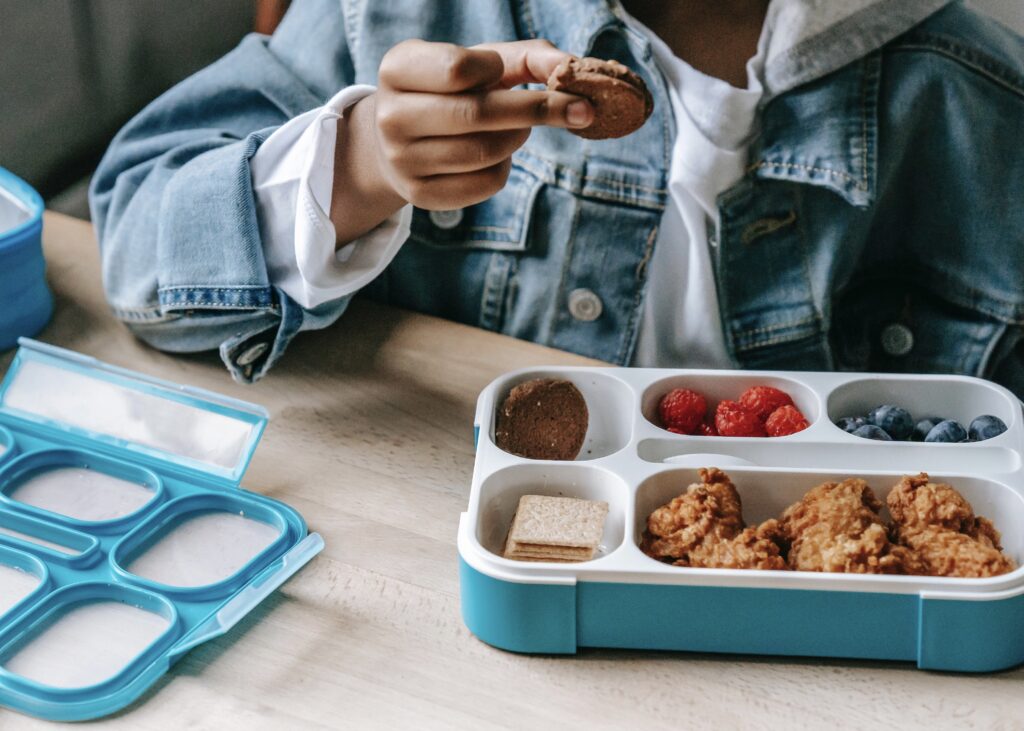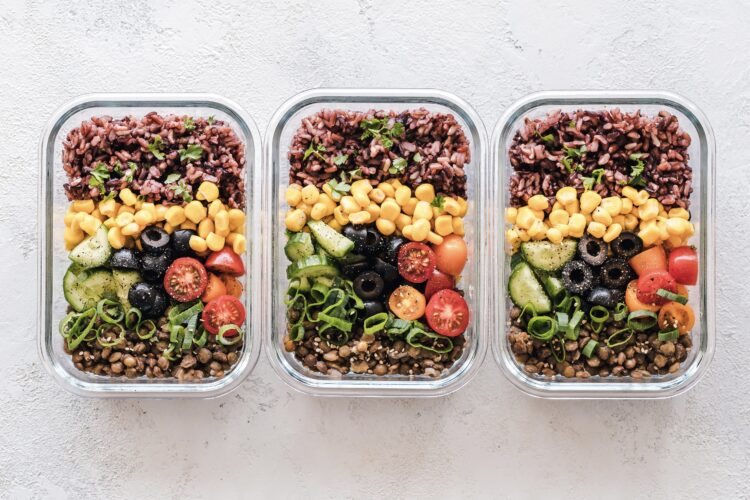In university, I struggle to maintain a healthy and well-balanced diet. Considering the rigorous coursework, maintaining a social life, and living independently, university students have a higher tendency to neglect their overall health, such as lack of sleep, reduced physical activity, and developing poor eating habits. If these aspects are left unamended, they can harm one’s academic performance and self-perception. Living on your own when you are far away from home can be daunting. You are accountable for more responsibilities about yourself, like taking care of your health. In the few years I have left in university, I want to make a vow and do better for myself, starting by eating well. I created a realistic and simple guide to help me achieve this goal. By following these five rules, you can, too!
- Plan ahead (if possible)
To take away the stress of cooking a well-balanced meal each time, it helps to plan ahead! First, allocate a time in the week where you are least busy to make a list, do groceries, and cook. The idea is to make a larger batch of food that you can place in the fridge and can simply reheat for the next week or two. It may be a good idea to invest in food containers where you can distribute the food by meal or day of the week. There are so many healthy and delicious recipes online that are student friendly, which are quick to make and require minimal ingredients.
- Portions, portions, portions
Maintaining a well-balanced diet is not about avoiding specific types of foods, like fried foods or desserts, but being conscious of the amount consumed. The rule of thumb is to have 2-3 cups of veggies and 1-2 servings of fruit a day. Aim to have some fruits and/or vegetables for every meal. Furthermore, also take note of having enough carbohydrates and protein to sustain you for the day (which can vary for each person depending on body mass and physical activity). If it helps, applying this concept while meal planning can help ease your mind. Plan ahead and distribute the different food groups for each meal. Also, take your time while eating and chew properly. Listen to your body to avoid under- or overeating. Eating at the right pace will give you enough time to fill your stomach and receive signals from your brain about satiety.

- Snacking is not your enemy
If you are the type of person who is active throughout the day or does not like big meals, you can plan to have smaller meals around five times a day. You can plan and portion the meals to your preference while adding snack options accessible to you during the day. Snacking is not your enemy, but it is important to choose the right snacks! The best choices are obviously fruits and vegetables. You can cut them up to make them easier to eat for later, or even pair them up with cheese, crackers, or dips. Also, opt for less processed foods, such as chips and soft drinks. Look into nuts, yogurts, cereals, protein bars, smoothies, or homemade snacks (if you have the time). With this approach, you can limit the amount of sugars and unsaturated fats that go into your body and focus on fueling yourself with nutrients.
- A reusable water bottle is your best friend
Most of the time, we mistake dehydration for hunger. It is recommended to have around 4 l of water daily for men, and 3 l for women. Carrying a reusable water bottle around can make it more accessible for you to hydrate. There are also water bottles that indicate the amount you should drink at specific times of day, making it easier to track your consumption. At the same time, it is good for the environment!
- It’s ok to ‘cheat’ on occasion (and stay healthy)
Nobody is perfect. And there is no such thing as the perfect diet. It is totally okay to enjoy a slice of cake at a restaurant, or eat a bag of chips during movie nights from time to time. Again, it is not about perceiving specific foods as an enemy, but creating a healthy relationship with it. Be mindful with what you eat and focus on balance, meaning not consuming more than you can take or less than what you need.
Roselle Torres
If you found the article interesting, I also recommend this:




